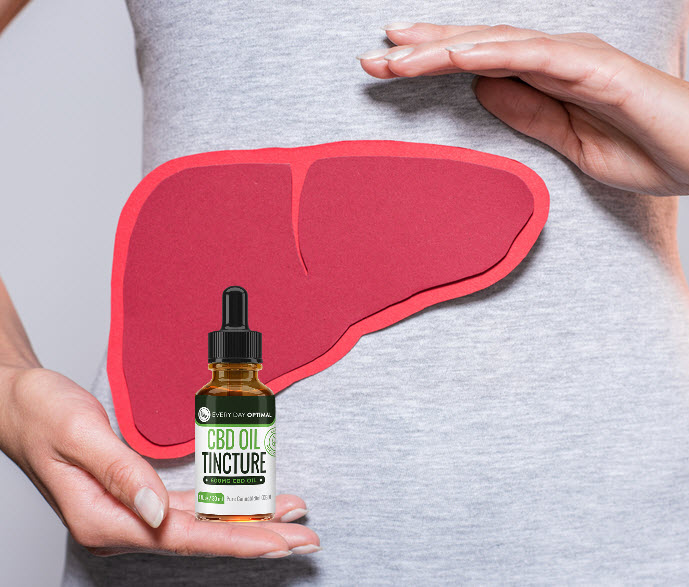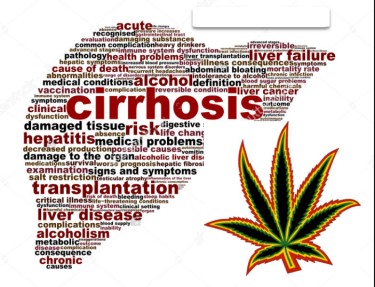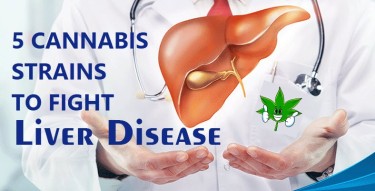
How Does Cannabis and CBD Affect Your Liver?
Cannabis has a wide range of therapeutic potential. The cannabinoids in the plant have carcinogenic, anti-inflammatory and antibacterial effects. Studies have shown that cannabis-derived drugs help with weight loss, stress and pain relief, and improving lung capacity, among other things.
Extensive research has been conducted over the past few decades to determine the therapeutic potential of cannabis in liver disease and the degree of susceptibility of localized receptors in the liver to cannabinoids. In this post we will examine and break down the available research showing the relative effects of medicinal cannabis on liver disease and whether or not cannabis may have adverse effects on the liver.
The purpose of the liver
The liver is on the right side of the body, just below the diaphragm and above the gallbladder. An average-sized adult liver weighs 1.4 kg. It has two unequally sized lobes known as the right lobe and left lobe. Of the two, the right lobe is larger. Both are connected by connective tissue that holds the organ to the abdominal wall.
This unique organ plays an important role in maintaining the body, one of which is excretion. It filters out the good and valuable components of the substances ingested and passes the rest on to be excreted from the body. It is considered a natural detoxifier. The most important part of the liver is the portal vein. This vein carries the original blood vessel from the digestive organs to the liver for sorting. The liver filters out the harmful substances and drains the blood, which contains only suitable substances. The liver produces bile (to break down fatty compounds).
Vitamin K is one of the essential vitamins that the liver needs to produce protein juices, which are used for clotting in injuries.
General liver diseases
Like other vital human organs, a liver can only handle a limited amount. It does a lot of work processing natural and synthetic materials, some of which are drugs. One study pointed out that not all livers are developed enough to process synthetic materials. Because of this, they collapse after continuously encountering such materials. Not all liver diseases are serious, but some can be fatal.
Some common liver diseases are fibrosis, hepatitis, fatty liver and cirrhosis. The main cause of most of these diseases is poor and unhealthy lifestyle. Alcoholism and excessive drug use are two leading causes of liver disease, closely followed by obesity and other unchecked or untreated conditions. For example, cirrhosis occurs when fibrosis is either undetected or untreated. There are so many things that could go wrong in the liver because every material that is ingested goes through it. The liver becomes scarred from excessive drugs, alcohol, and unhealthy meals.
Treatment and management of liver disease
Often the liver can repair its cells since some of the conditions are reversible. In advanced cases like fibrosis, it is treated with a healthy lifestyle and medication. If left untreated, liver disease can lead to worse conditions such as liver failure and even death. If the liver has a bad case of scar tissue, the patient’s only option might be a liver transplant (which is difficult and expensive to find).
The liver and cannabis
The future role of cannabinoids in maintaining liver function is being studied worldwide. While it’s impossible to draw any conclusions now, it’s not out of place to say that they have solid potential.
Here is an overview of the current state of research.
cannabis and fibrosis
The endocannabinoid system is made up of receptors. The most important are CB1 and CB2. These receptors are found in relative amounts in the body along with enzymes. The body also produces natural cannabinoids and endocannabinoids. These connections ensure that all bodily functions are regulated and normal. When cannabis is ingested, the cannabinoids interact with the ECS receptors to produce an effect similar to endocannabinoids.
There are limited CB1 and CB2 receptors in the liver, but there are higher amounts in diseased livers than in healthy ones. Scientists assume that these receptors are crucial for the regeneration process of scar tissue in the organ. Parfieniuk and Flisaik explained this complex process in a 2008 study. The scientists proposed that the receptors have opposing roles. CB1 acts as a pro-fibrogenic and pro-inflammatory compound, while CB2 counteracts these functions.
In patients suffering from fibrosis, CB1 has the potential to worsen the condition, while CB2 can be used to treat it. Only cannabis plants that can activate the CB2 receptor can be used to treat liver disease.
In 2011, further studies showed that CB2 receptors have the potential to kill malignant cells in the liver and reduce scar tissue formation. When the ECS is properly manipulated, CBD-derived cannabis medications can be helpful for fibrosis.
cannabis and hepatitis
Hepatitis is gradually becoming one of the leading causes of death around the world. It is a physically demanding disease that is extremely difficult to treat and for which there is no cure. The disease can cause immunomodulated liver disease. The available research on this has been done on mice and the information cannot be used for humans.
In the rodents, the scientists observed a reduction in the cytokine level caused by anandamide. When cannabis is ingested by humans, it makes many anandamide compounds available to receptors by inhibiting FAAH. However, it is unclear whether this would reduce cytokine levels in humans.
Conclusion: The Effects of Cannabis on the Liver
The effects of cannabis on the liver are still unclear. Scientists have not been able to determine whether the drug is good or bad. However, they have emphasized that people with liver disease should have nothing to do with smoking cannabis and should consume it orally. More research is needed to explain the profound relationship between cannabinoids and the liver, particularly THC and CBD.
It is important to note that CBD interacts with medications people take. It inhibits the production of the liver enzyme cytochrome P450 (which is used to break down drugs and foreign substances). Consult a doctor before consuming CBD-based medicines. This way you can be sure that the drug will do more good than harm.
CANNABIS AND LIVER DISEASE, READ MORE…

WHAT CANNABIS CAN DO FOR CIRRHosis READ MORE!
OR..

WHICH MARIJUANA STRAINS HELP WITH LIVER DISEASES?

Post a comment: